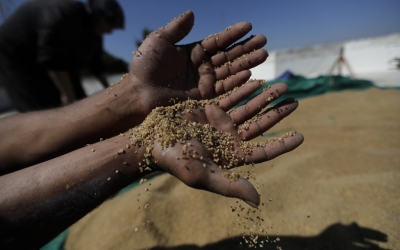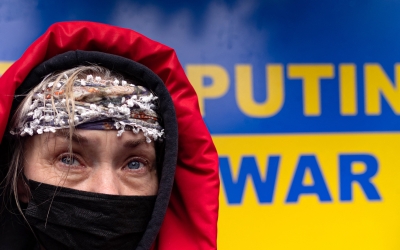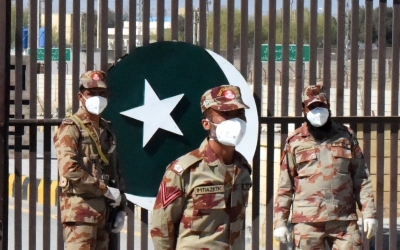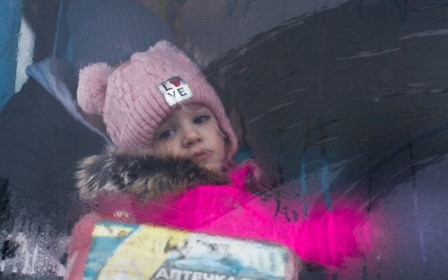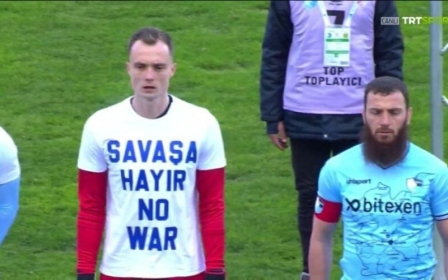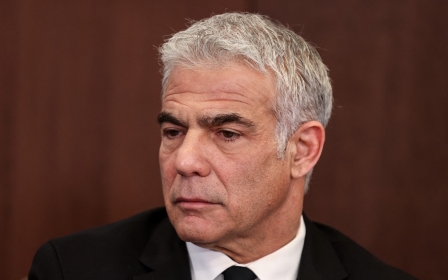Iranian press review: Economists tout 'benefits' of Russia-Ukraine war
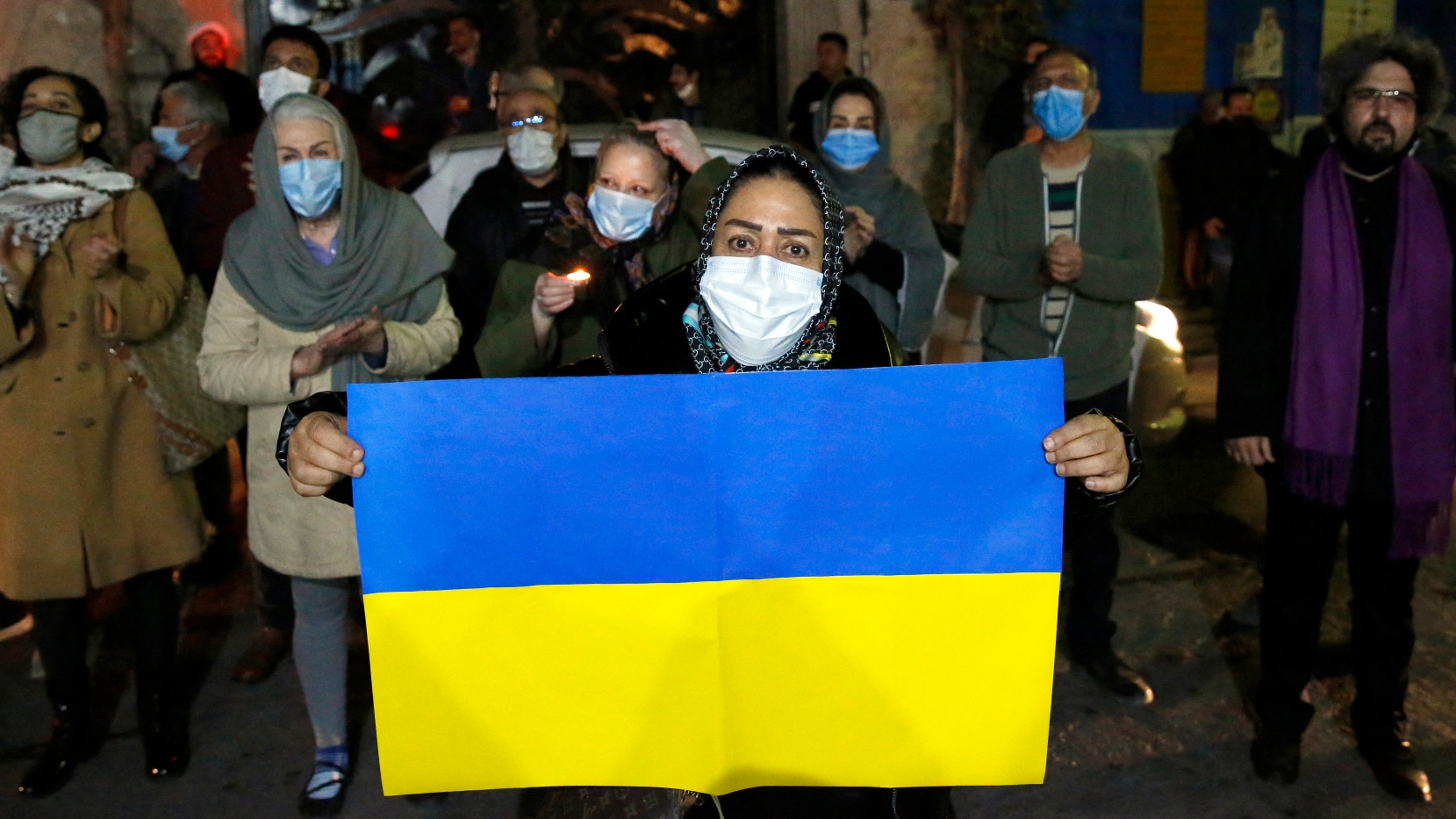
Iran's economy benefits from war in Ukraine, say experts
Economists in Iran have suggested that President Raisi's government could use the Russian invasion of Ukraine to boost its economy, which has been crushed over the years by international sanctions and oil exports bans.
The experts said that if Russia, as the leading supplier of gas to Europe, stopped exporting gas to European countries, Iran could gain a new market, despite international sanctions.
Russia has the most proven natural gas reserves in the world, Iran has the second most.
"This is Iran that can easily supply the world with needed oil and gas", financial daily Asia splashed on its front page on Saturday.
Iran's official news agency IRNA also predicted that the intensifying war of sanctions between Russia and European countries would be an opportunity for Iran to become a new energy source for Europe.
"Iran, which has one of the world's largest gas resources, can now have the upper hand in international negotiations and even open a new path for Iran to export gas to Europe," IRNA wrote.
Some experts, however, suggested that Iran would not attempt to take Russia's place in supplying Europe with gas because of close political ties between Tehran and Moscow.
"We could use this opportunity only if our political relations with Russia let us fill the gap that would happen after Russia's absence from the global market," Ali Marvi, an Iranian economist, told the Ebtekar daily.
"It is possible that due to our political relations, we would not be permitted to take Russia's place in the international energy market."
Iranians split on Russian invasion of Ukraine
Ordinary Iranians are divided on the Russian invasion of Ukraine. Some have highlighted western powers' lack of support for Ukraine, while others have warned about Russia's influence on Iran's foreign policy, criticising the war.
Since the beginning of the war in Ukraine, pro-establishment Iranians have stressed that the crisis proves how untrustworthy western powers are in supporting their allies.
Amid the ongoing nuclear talks in Vienna between Tehran and world powers, some Iranians also suggested that Ukraine's nuclear disarmament after the fall of the Soviet Union was the primary cause of Ukraine's struggle to defend its territory.
"Following the collapse of the Soviet Union, Ukraine was the third atomic power in the world, but in response to western powers' guarantees [of support], they decided to give up on their atomic arms…. What is now happening in Ukraine is a result of that trust," wrote one prominent Iranian Twitter user.
Another compared the situation in Ukraine with what happened last year in Afghanistan.
"No matter if you are [Afghan president] Ashraf Ghani, or the Ukrainian president, if instead of your people's power you trust the US, then you won't have any destiny other than surrender, defeat and being left alone," Iranian writer Mohammad Shirvani wrote on Twitter.
Meanwhile, the supporters of former conservative president Mahmoud Ahmadinejad shared one of his recent speeches, in which he warned about a deal between the US and Russia over Ukraine.
In this video, Ahmadinejad claimed that in response to the White House's green light for the invasion of Ukraine, Russia would stop supporting Iran in Vienna talks aiming at restoring the 2015 nuclear deal between Iran and world powers.
At the same time, anti-establishment Iranians condemned President Ebrahim Raisi's telephone call with his Russian counterpart, in which Raisi blamed Nato for the current war in Ukraine.
"In just a few hours, the people of Ukraine have faced displacement, missiles, invasion and bloodshed, but Iran's disgraceful president called his master Putin and expressed his obedience," wrote an Iranian Twitter user.
Shadow of Ukraine war over Vienna talks
The Russian invasion of Ukraine has fuelled speculation about the potential outcome of the Vienna talks, in which Iran and the G4+1 (Russia, China, Britain and France plus Germany) have been negotiating to revive the 2015 nuclear deal.
On Monday, Reuters cited a source saying Iran's stance in the negotiations had become "even more uncompromising" in recent days.
Meanwhile, Iranian politicians and foreign policy experts warned that Russia's influence over Iran's negotiating team could push the talks in Vienna into a deadlock.
"I had already said that the Russians would not have let the talks reach a result before they attacked Ukraine," Heshmatollah Falahatpisheh, former chairman of the Iranian parliament's National Security and Foreign Policy Committee, told Khabar Online.
"Russians carry out all their international policies - JCPOA one of those - based on their first foreign policy priority, which is Ukraine," he added, referring to the nuclear deal with its official name, the Joint Comprehensive Plan of Action (JCPOA).
Iranian internationalist analyst Reza Nasri warned that the worsening crisis in Ukraine would negatively affect Iran's interest in the Vienna talks.
"If the Ukraine crisis leads to a humanitarian disaster or a military confrontation between the West and Russia, the chances of collaborations [between the negotiating parties] will reduce in Vienna talks," the ISNA news agency quoted Nasri as saying.
*Iranian press review is a digest of reports that are not independently verified as accurate by Middle East Eye
Middle East Eye delivers independent and unrivalled coverage and analysis of the Middle East, North Africa and beyond. To learn more about republishing this content and the associated fees, please fill out this form. More about MEE can be found here.


